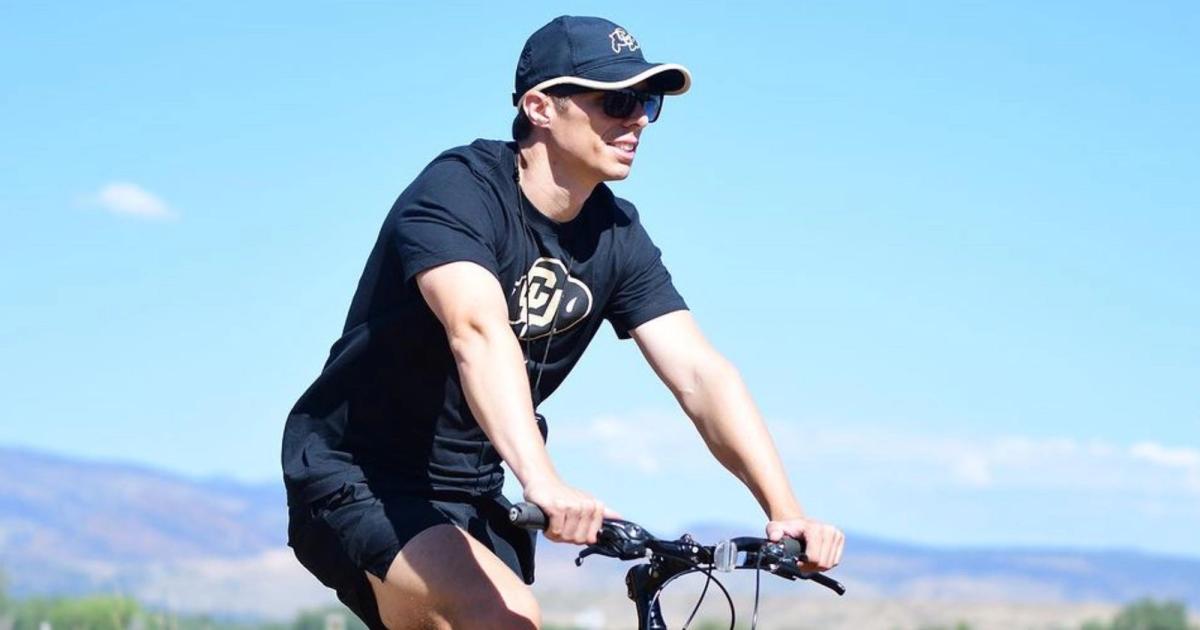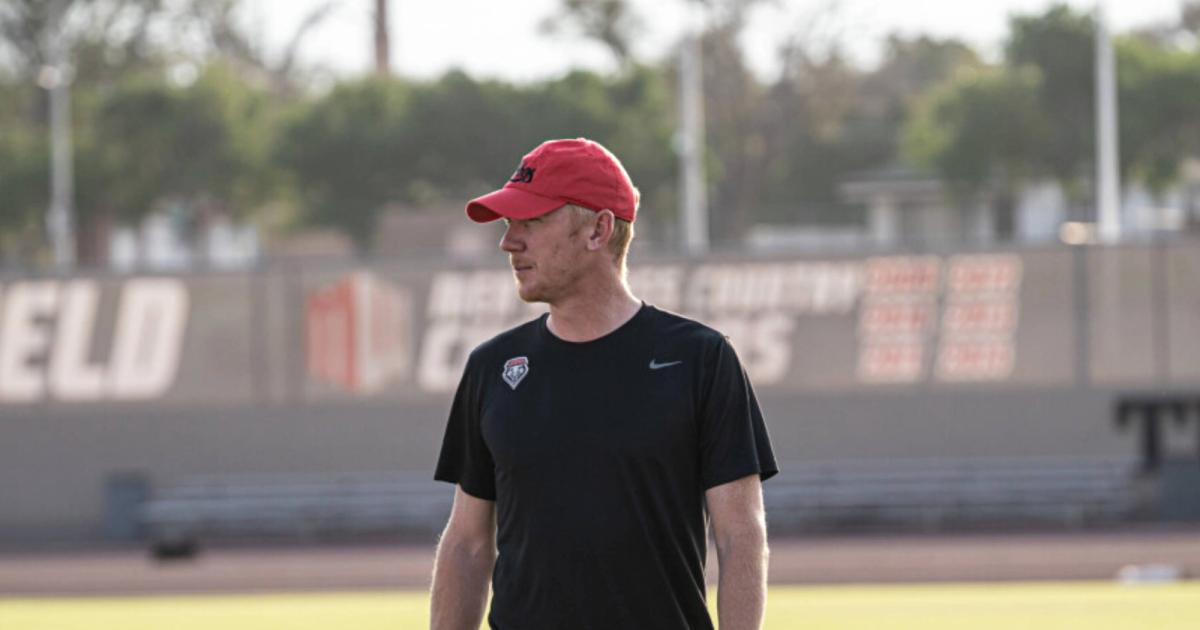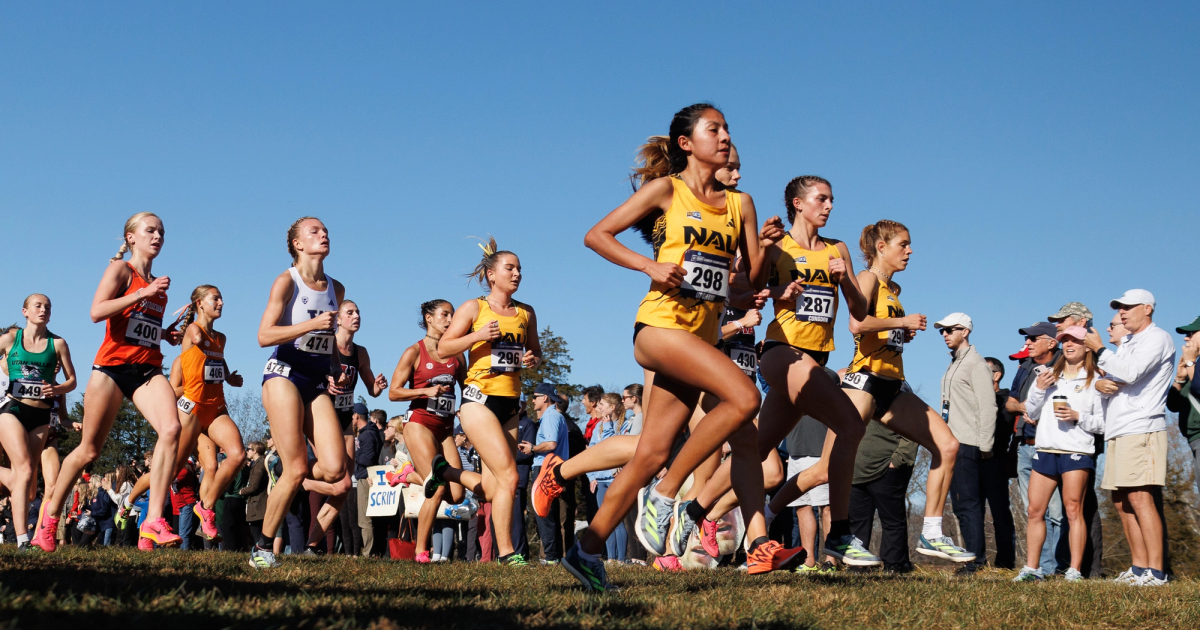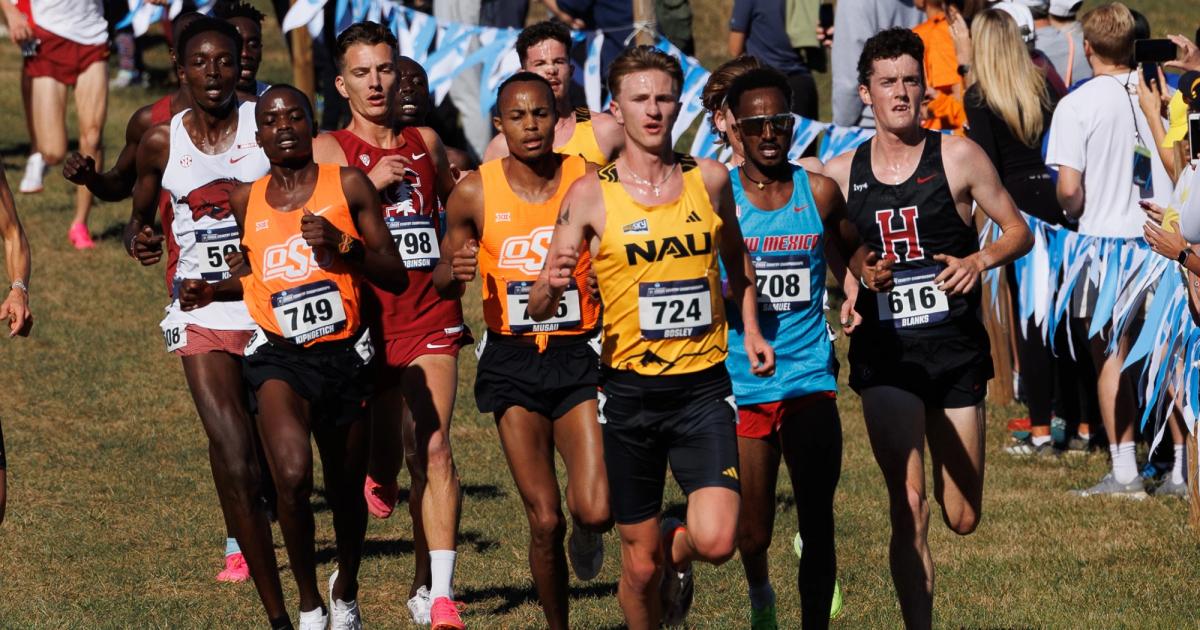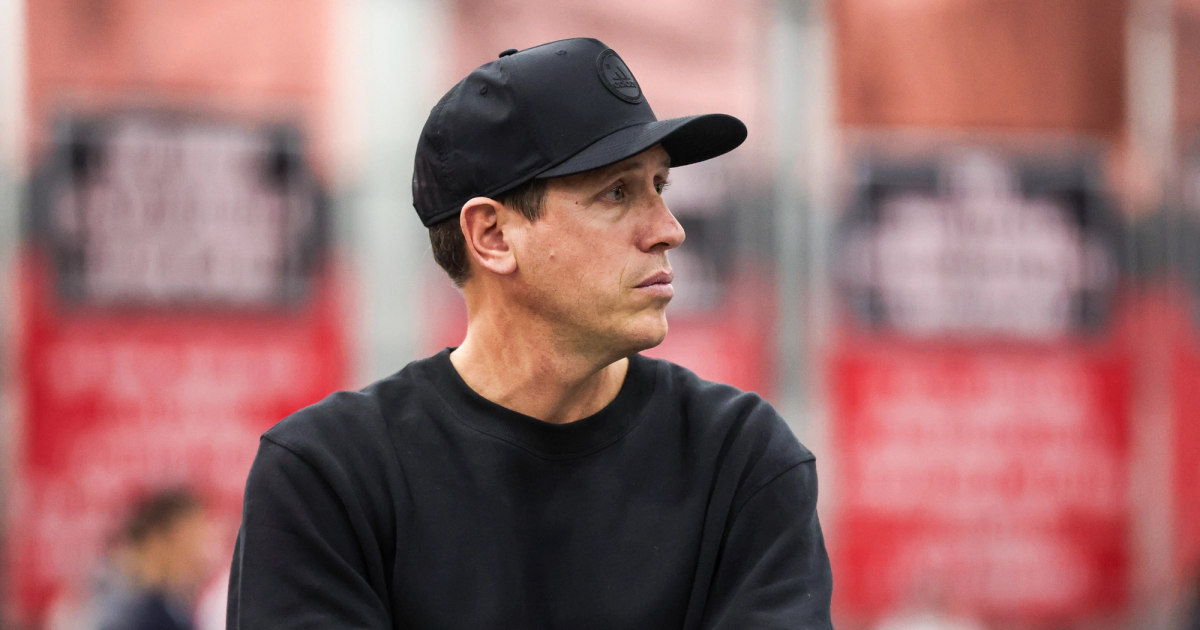By Jasmine Fehr
September 24, 2024
"Everybody thinks that you put on a college jersey of a successful program and you’re just good — that’s not reality. We need people who understand that it’s going to be difficult to win a national title at Colorado. But it's something that can be done."
In our second NCAA coach spotlight, Jasmine Fehr caught up with Sean Carlson to reflect on his first few months as the University of Colorado’s Director of Cross Country and Track & Field.
Carlson joined the Colorado Buffaloes this summer after spending two years at the University of Tennessee as head coach and 11 years prior coaching at Notre Dame. His time with the Irish was highlighted by coaching several athletes to national titles as well as a runner-up team finish at the NCAA Cross Country Championships.
In our conversation, Carlson shared his vision to revitalize the Buffs’ cross country program, what he values in creating a positive team culture, how his coaching philosophy has evolved throughout his career, and what fuels his excitement for the journey ahead in Boulder.
The following interview with Sean Carlson has been edited lightly for length and clarity.
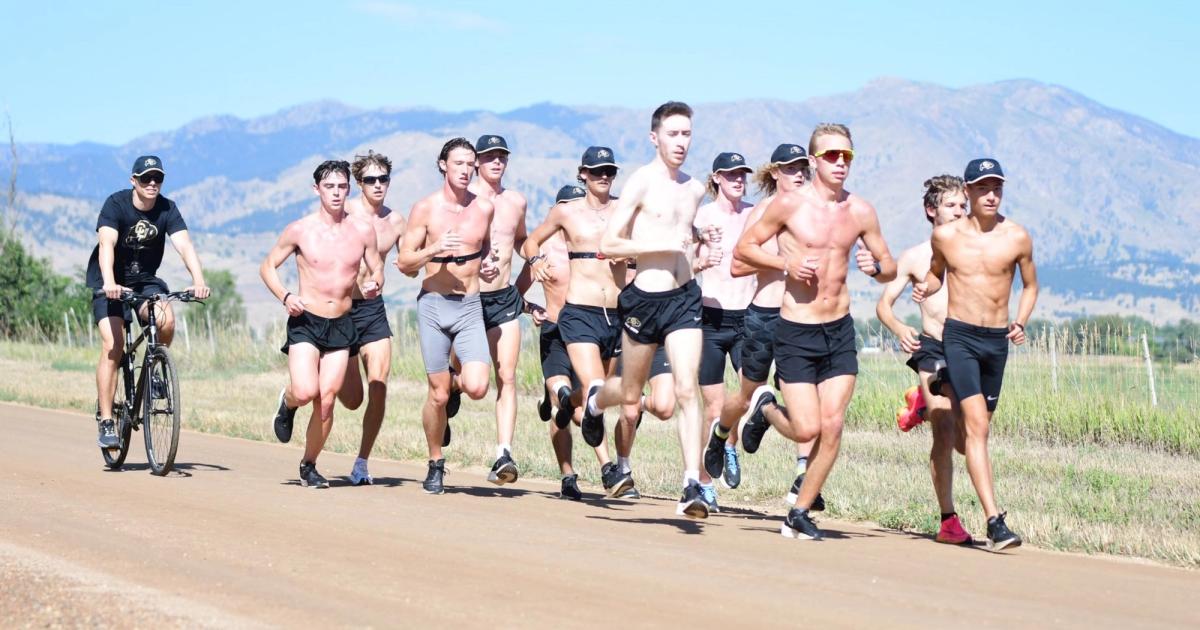
Courtesy of Colorado Track & XC / @cubuffstrack
CITIUS MAG: Welcome Sean Carlson! Before taking over at Colorado, you were at Tennessee. The women's cross country team hadn't qualified for NCAAs since 2006, and within two years, you led the women to a sixth-place national finish. As you take this next step in your career, what excites you most about rebuilding Colorado's cross country program?
Sean Carlson: I've been fortunate to be a part of programs that were historically very successful. Notre Dame and Tennessee both had historic successes in cross country. When I started both of those positions, they weren't in their traditional place. When I took over at Notre Dame, we were 14th in the region during my first year. By the time I left, we were second at nationals. At Tennessee, the women hadn't qualified [for NCAAs] in over a decade and they finished sixth. I really enjoyed the process of being able to continue to rebuild a tradition and rebuild a successful program.
Colorado has an incredible tradition and it’s been successful at the highest level of NCAA cross country. But I also know that last year was a bit of a difficult year for the program. We slid a little bit from the standard. The thing that’s exciting about that is we get to start fresh. It's really hard to take over a program that just won nationals. It might be fun in the fact that you're relevant, but I think you can shape it a little bit more to the identity and culture that you want while still valuing and respecting the traditions of the past.
I've really enjoyed my opportunities to help grow and guide programs. Colorado is a place that I can grow and hopefully guide back to their traditional success of winning national titles. There are a lot of things changing in college athletics that will make those challenging adventures, but adventures nonetheless.
"I've really enjoyed my opportunities to help grow and guide programs. Colorado is a place that I can grow and hopefully guide back to their traditional success of winning national titles."
CITIUS MAG: Speaking of changes in college athletics, we've seen many recent developments in terms of NIL deals, roster limits, athlete ages, and scholarships. As a coach, how have you navigated the changing landscape of NCAA athletics?
Sean Carlson: Each program and each school is going to have their own number – whether that be roster size or scholarship size. Historically in the NCAA, there's 12.6 scholarships on the men's side and 18 scholarships on the women's side. I think you can still be very successful doing that. But now you see places that used to be very sprint-heavy investing money in distance running because there’s more scholarship money.
I think there will be a higher level, or a deeper level, of competitiveness. SEC schools that have historically been sprints-heavy might now have really good distance programs. Those scholarship limits will change a lot and will change the competitiveness of teams. Each program is going to have to focus on what they feel they can do in terms of their budget… In some programs, that means everything: sprints, jumps, throws, distance.
Some programs are going to be limited in those resources and they'll have to focus on the things that they feel they can do well. They’ll invest their scholarship money or roster spots into a few areas. I think that’s going to be different for every program. We've historically been very successful at distance running and we plan on continuing to do that here at Colorado.
The other part of the landscape changing… Historically, there have been some foreign athletes and older athletes in the NCAA. This is probably the most I've ever seen, at least in my career. There's a massive amount of foreign talent entering the NCAA and a massive amount of talent that is older. I mean, there's a 27-year-old freshman right now in the NCAA with four years of eligibility that has run at really big global meets. So that changes the landscape quite a bit.
In the past, it used to be: take a good guy out of high school that's run 9:00 and they can be relevant pretty quickly. Now that 9:00 guy is just not relevant to be quite honest, at least not initially. There are exceptions to that rule. Last year at NCAAs for cross country on the men's side, there was one freshman and one sophomore who were American in the top 100. That's a wild statistic. It just shows you how deep the NCAA has gotten with talent, and not just talent from the U.S. that is 18 years old… It’s talent from around the world that is a pretty wide range of ages.
In our sport, age and development helps. That's going to be a big factor in everything here at Colorado. We're still committed to getting the top American distance runners out of high school and developing them. But we also recognize that transfers are going to be a factor in being competitive immediately. It takes time to develop kids. The expectation of Colorado is to be good right now and to develop kids. We're trying to do two things at once, we're trying to manage a balance because the NCAA has changed. It’s very deep and really competitive right now. It's a fun challenge that I'm excited about.
"It takes time to develop kids. The expectation of Colorado is to be good right now and to develop kids... It's a fun challenge that I'm excited about."
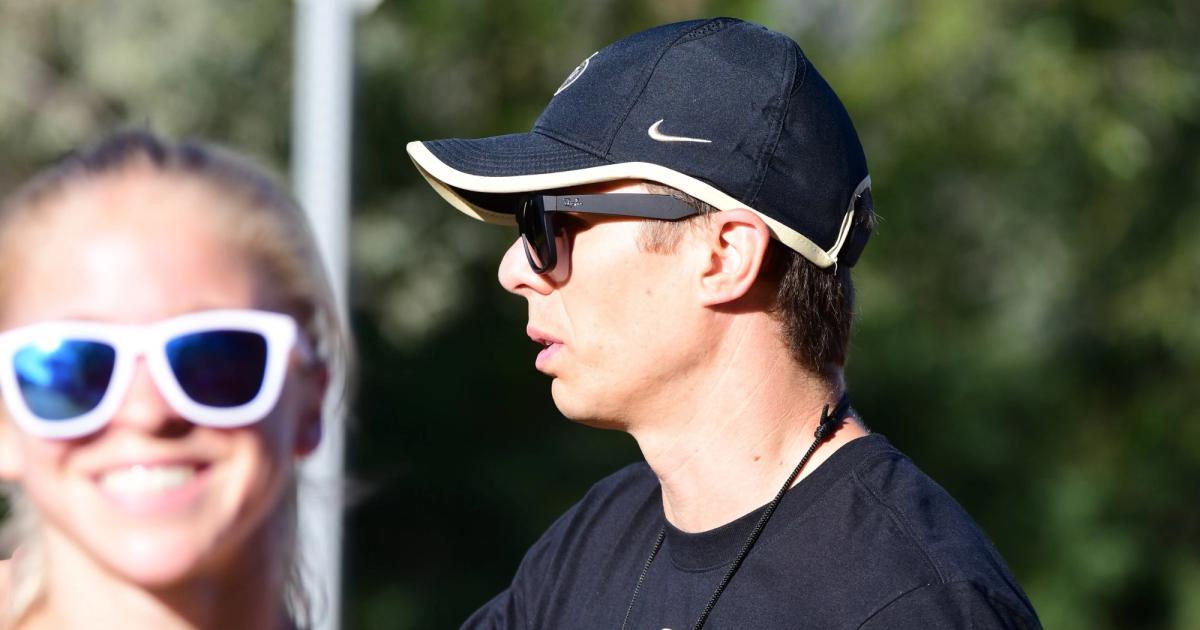
Courtesy of Colorado Track & XC / @cubuffstrack
CITIUS MAG: Building off of that, what are some of the biggest challenges that you anticipate facing as you grow into your role?
Sean Carlson: The expectation of Colorado is to win. We've got a lot of national titles and winning isn't easy. The landscape of what a winning team looks like has changed a bit. That will be a challenging thing to balance.
A really important one for us is going to be finding the right kids. At Tennessee, we were sixth at nationals with a group of women where none of them had run under 10:25 for two miles in high school, which is really impressive. I'm really proud of that stat. In the last couple of weekends where we’ve brought kids on campus, I don't think we brought in a girl over 10:25 for two miles. That just puts it into perspective.
There’s also this challenge of finding the right girls. There's a reason the success rate of the top girls in the country out of high school is pretty low. We have to find the right people who fit our culture and values and who we can help develop and be successful with. It's a champagne problem, but it's still a challenge.
Something I've experienced here is that a lot of runners from Colorado haven't considered Colorado in the past couple of years. At Tennessee, I had a couple of girls commit from the state of Colorado that were some of the best girls in the country and in the state. A lot of Colorado kids want to leave, which is mind-blowing to me because of how beautiful this place is and the tradition here.
We are here to recruit and we're going to recruit really hard. Coaching isn't my only job; recruiting is a massive part of it too. We're going to recruit the best girls in the state, the best guys in the state, and the best kids in the country. We're not going to let the best talent in Colorado leave Colorado, at least not without a fight.
That's another one of our challenges because there is a massive amount of talent right now in the state: just keeping them in the state and rebranding that stigma that might have existed. There are a lot of challenges that every institution faces; you’ve just got to find your path, the things that are special and unique about each place, and find the right people that want those things.
"We are here to recruit and we're going to recruit really hard. Coaching isn't my only job; recruiting is a massive part of it too... We're not going to let the best talent in Colorado leave Colorado, at least not without a fight."
CITIUS MAG: You mentioned that you recruit athletes carefully. What characteristics do you look for in recruits? What do you value most in creating a strong team culture?
Sean Carlson: I think creating culture and finding those people are the same thing. You create your culture by the people you recruit. Then part of it is you as a coach leading the way and instilling messages that they actively live by. What we're looking for is people who want to live the lifestyle of an elite distance runner.
Here at Colorado, you can get a great education, but the lifestyle of being an elite distance runner is also something that's really important to us. That's sleeping, getting your rest, recovering and fueling really well. We're not into partying, drinking, smoking and drugs here – I've been very clear about that in our recruiting. Hopefully that filters out people who maybe don't want to live the lifestyle of elite distance running, which is a big piece of our culture.
It’s also about finding people who want to be teammates, who want to be on a good team, as opposed to just finding people who want to be the only individual on the team and that's all they care about. Finding people who want to be coached and want to buy into a program – not just wanting to do what it took for them to be successful in high school. The reality of being successful in high school and being successful in college is that it's a big step up. You have to be willing to adjust, change, and grow. We want people who are willing to grow with our program.
The other part of the culture piece is finding people who want to win. Everybody says they want to win. That's a very easy thing to say and a much harder thing to do. Winning has a price and sometimes the price is going to bed at 10:00pm. Sometimes the price is being disciplined in certain areas of your life. We need to find people who want to win who are also willing to back up that statement. We want to find people who want to do hard things.
Everybody thinks that you put on a college jersey of a successful program and you’re just good… That’s not reality. We need people who want to do hard things and understand that it’s going to be difficult to win a national title at Colorado. But it's something that can be done.
It's not going to be done by just putting on a Colorado jersey; it's going to be done by doing the right things, living the lifestyle, and being committed to being disciplined in the right ways. The culture piece is paramount, and it’s one that’s created hopefully through my direction, our coaching staff’s direction, and through the type of kids we get here.
"The reality of being successful in high school and being successful in college is that it's a big step up. You have to be willing to adjust, change, and grow. We want people who are willing to grow with our program."
CITIUS MAG: Moving to your personal coaching philosophy, how would you define it and how has it evolved over the years?
Sean Carlson: Every season it continues to evolve. Even just coaching in our sport in the last five years has evolved pretty drastically. Just look at training methods like the introduction of double threshold.
My approach is to be very flexible – being really flexible with kids and understanding that they come from a lot of different backgrounds and there are a lot of different ways to help them be successful. Last year when I was at Tennessee, there were no workouts where we had all of our top seven women doing the same workout. That just shows that you have to lean into the things that people are good at, recognize when people need a rest day, recognize when people are feeling beat up, and be able to adjust based on that. I think that can lead to a really good result if you use it in the right way.
Everybody has to understand that there are factors that go into being successful in college and in distance running. Talent is certainly one of those God-given abilities, work ethic is one of those, and durability is one of those. The coaching piece is one of those too. To be quite honest, I think you have to have at least three of those things to be competitive on the national scale. That's a very challenging thing you're facing as a coach.
I can control coaching, so hopefully that's one that we have checked off. Work ethic and durability are factors that I don't have control over completely. I can help guide, but there's a lot of layers to that. If a kid has the skills that it takes to be successful at this level, I pour everything that I can into helping guide them to being one of the best in Colorado or in the NCAA.
What I've experienced in all the places I’ve coached at is that once you have a bit of success as a coach, someone shoots you an email or wants to come to your school and says, ‘Hey, I’m at this level, you've done a really good job, and I think you can make me the national champion.’ It's like, well… you're missing some factors there. It's not just me giving you workouts that are going to allow you to win nationals. If you have all those pieces, I think it's been proven that I can help guide you there.
But I can't wave a magic wand, unfortunately. When you're 17 or 18 years old, it's a bit hard to grasp sometimes. I think everybody just thinks, ‘Well, if I have the right coach and I work really, really, hard, I'm going to be good.’ There's more to it, for good and bad. It's just the truth.
My coaching philosophy is that I'm going to do everything for the kids that we have and try and help them reach their God-given abilities, within their God-given abilities.
"You have to lean into the things that people are good at, recognize when people need a rest day... and be able to adjust based on that. I think that can lead to a really good result if you use it in the right way."
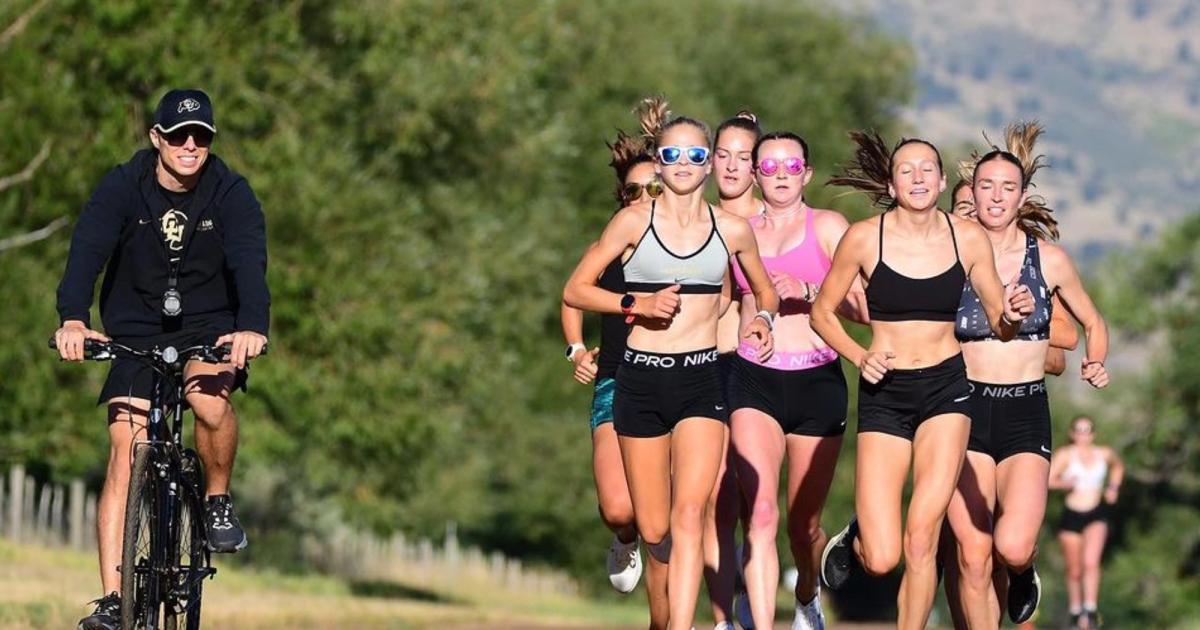
Courtesy of Colorado Track & XC / @cubuffstrack
CITIUS MAG: Can you share one of your favorite moments, meets, or workouts with the team from your years as a coach?
Sean Carlson: The things I've looked back on and enjoyed the most are honestly the very small moments. It's the daily process of talking to our kids, joking around with them, and the daily process of seeing our kids get better through stacking workouts.
I really enjoy the grind, and not everybody enjoys that part of our sport. But to do this at a really high level, you have to be able to grind. I think it makes it a lot easier though if you enjoy it. The grind gives me purpose in life.
We had a bunch of recruits in this weekend and we had a couple of 16-hour days. Those are hard. But I still look forward to those and I'm really fortunate that I still have that motivation. It can add up, it can bury some people, just like training can. But I still really enjoy that part of our sport. It really allows me to have a purpose in my daily life: just being excited about getting up to help these kids get better, getting the right talent here, and all of that. If I were to look back, those are the things that I remember the most. They're very simple things. They're not these cool stories that everybody wants to hear.
But I can give you a couple of those stories. When I first got into coaching, I came from Division III. In my first year at Notre Dame, I started as a volunteer and was recruiting at every event. South Bend is 2.5 hours from the Chicago airport and every single weekend on repeat, I had to drive 2.5 hours to pick up a recruit and then drive 2.5 hours back to South Bend to get them there. And then another five hours total to get them back to the airport. There's 10 hours of driving every single weekend on repeat for an entire season, minus the weekends that we're traveling.
I think that really set the precedent for a lot of my philosophy in how I do things now. As a coach, I look at it like, ‘I'm never too big to do a job.’ I'll do whatever it takes, whether that means doing very small things for our program or the bigger picture stuff. If it's going to help make our program better, I have to recognize that it's important in this process.
"I look at it like, ‘I'm never too big to do a job.’ I'll do whatever it takes... If it's going to help make our program better, I have to recognize that it's important in this process."
But back to my story. My early days at Notre Dame, I started from a pretty low position and eventually moved up to being able to coach the men's distance runners. I remember the first national title we won: the DMR. It was so special to me because at the time, we had some good individuals: Yared Nuguse, Dylan Jacobs, Sam Voelz…
I remember asking those guys, ‘Do we want to go after individual events and try to qualify for nationals in those things, or do we want to go after the DMR?’ I genuinely let them make some of these decisions. They were a really young group: Dylan was a freshman, Yared was a sophomore, Sam was a sophomore. Then we had a guy named Edward Cheatham who was our 400m leg.
It was such a cool story because they all chose to forego individual events that some of them had chances of being an All-American in or even had a shot at a national title in, to run a DMR, to have a team win. There's something special about that selflessness. Looking back, that was a really good team. But at the time, it was very ragtag: Dylan was a true freshman, Sam was a Division III transfer, Yared was a walk-on out of high school, and Edward, the year before that, was a student manager.
Again, they've all grown into being pretty good distance runners. But at the time, they were not special, no big names. That was a special moment to win a national title with guys who at the time nobody really knew. Those are special moments when you really feel like you've beat the odds or have done something that people didn’t expect.
At Tennessee last year with our women, we weren't even ranked nationally at the start of the season. We were ranked sixth in our region. For them to finish sixth at nationals… That was a special moment because again, it was one of those moments where no one else really believed in this, and yet we came together and made something happen that was above expectations. As a coach, when you're above expectations, that's always the goal. You want to surprise people.
There's a lot of stories, a lot of memories I've had with some really good teams and really good people that I'll never forget. I appreciate them for allowing me to be a part of those moments. Because at the end of the day, it's their moment, and I'm just a part of those moments.
Dylan… There's another story. He won the 10K title his senior year at Notre Dame and had some pro contract discussions and offers that were really good. He decided to turn those down to come with me to Tennessee and have another shot at another national title to say, ‘Hey, I'm not a flash in the pan. I'm the real deal.’ He took a massive bet on himself, but also on me being able to help get him there again. That meant a lot to me. [Him winning the 5,000m] was an emotional moment... We did this, and we did this at altitude from sea level, where everybody said a sea level guy wasn't going to win it at altitude.
I've always been someone to make our teams believe and make our individuals believe that it's us against the world. Whether people are doubting us or not. I've always appreciated the trust that these kids have given me to help them reach their goals.
CITIUS MAG: As we look ahead to future years with the Buffaloes, what direction do you hope to take the program in and what are you looking forward to most?
Sean Carlson: We want to continue the tradition of success and competing for national titles here at Colorado. From a results-focused goal, that's the truth. But along the way, I think it's really important for us to create a culture of kids having fun. Creating lifestyle habits and characteristics that can be translatable over the course of their life.
The things that it takes to be successful in this sport are things that each of our kids individually can take into their lives after college to be successful employees, husbands, wives, fathers, mothers, and friends. I think those skills are absolute. And hopefully here at Colorado, we're reinforcing those.
The reality is, results help reinforce habits. So when we're winning, when we're doing really well and being very competitive… Those habits become something you want to continue to do. Those characteristics are characteristics you want to continue to have. What we're trying to do is reinforce successful life traits.
"The things that it takes to be successful in this sport are things that each of our kids individually can take into their lives after college... Hopefully here at Colorado, we're reinforcing those."
CITIUS MAG: Thank you so much for joining us. Good luck to you and the team this fall. Go Buffs!
___________________
Keep up with all things track and field by following us across Instagram, X, and YouTube. Catch the latest episodes of the CITIUS MAG Podcast on Spotify and Apple Podcasts. For more, subscribe to The Lap Count and CITIUS MAG Newsletter for the top running news delivered straight to your inbox.
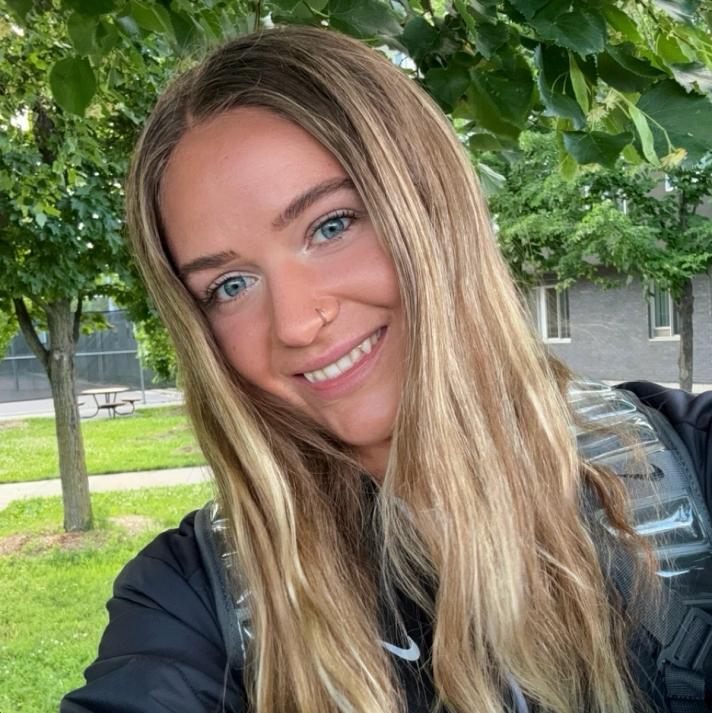
Jasmine Fehr
Jasmine Fehr produces the CITIUS MAG Podcast, manages our website, and shares content across our socials. She’s a marathon runner training in Flagstaff, Arizona. Her collegiate running career spanned the University of Portland and the University of Tennessee, where she earned a Bachelor’s degree in Psychology and Master’s degree in Communications.
